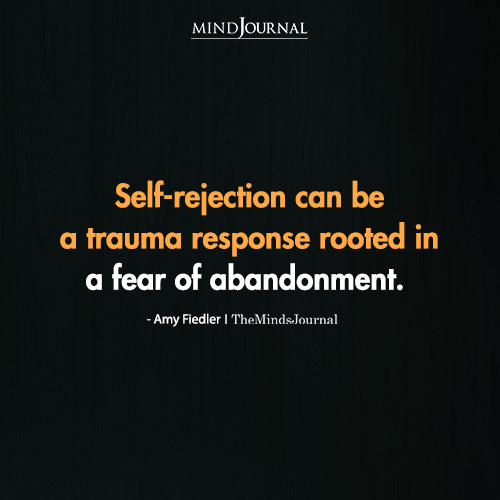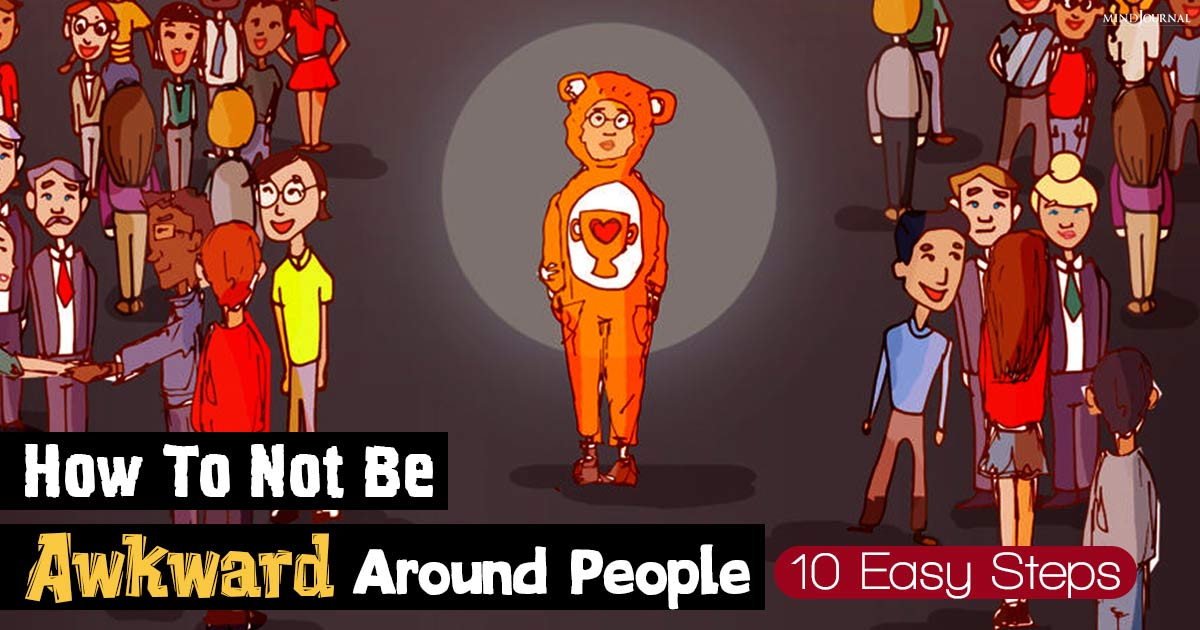Social situations can be challenging, but with some simple techniques, you can feel more comfortable and confident in your interactions. Figuring out how to not be awkward around people doesn’t have to be complicated.
In this guide, we will explore effective strategies and proven methods for navigating these delicate social encounters, enabling you to foster a supportive and inclusive environment while ensuring everyone feels valued and respected.
Socially Awkward Meaning
Socially awkward behavior refers to feeling uncomfortable or out of place in social situations. It often involves experiencing anxiety, struggling to initiate or maintain conversations, misreading social cues, displaying inappropriate body language, and harboring a persistent fear of judgment or rejection.

If you find yourself often stumbling over your words or unintentionally highlighting your own social awkwardness, you’re certainly not alone. Social awkwardness is something many of us contend with, and it’s a topic worth delving into.
One study sought to uncover the common thread in narratives of socially awkward situations. It discovered that these awkward moments frequently revolved around perceived moral or social transgressions, intensifying the social situation and shaping perceptions of social behavior.
Awkwardness sometimes strikes suddenly, but more often than not, it arises from underlying tensions that have been building.
The constant feeling of how to not be awkward around people has also been shown to increase anxiety levels leading to being awkward in public. It is a vicious cycle. Let us explore it’s symptoms!
Read More: Performance Anxiety – 12 Signs, Types, Causes, Treatment
Symptoms of Social Awkwardness
The symptoms of social awkwardness can manifest in various ways, often impacting an individual’s behavior and interactions. Knowing the signs and symptoms of social awkwardness will help you get an answer to the question, ‘How to not be awkward around people?’
Some common signs include:
1. Anxiety in Social Settings
Feeling excessively anxious or nervous when engaging with others, especially in unfamiliar or large social gatherings.
Read More: What Is Anxiety? 19 Signs, Causes, Self-Help Tips, FAQs
2. Difficulty Initiating or Sustaining Conversations

Struggling to start or maintain conversations, leads to awkward silences or a sense of disconnect during interactions.
3. Inappropriate Body Language
Displaying rigid or unusual body language, such as avoiding eye contact, fidgeting excessively, or exhibiting tense gestures.
Read More: What Is Body Language? Top 10 Tips To Improve
4. Misreading Social Cues
Difficulty understanding non-verbal cues or misinterpreting social signals, which can result in inappropriate responses or behaviors.
5. Feeling Out of Place
Experiencing a persistent sense of not fitting in or feeling uncomfortable in various social settings, leading to a reluctance to participate or engage with others.
6. Overthinking Social Interactions
Ruminating excessively about past social interactions, often leading to self-doubt, self-criticism, and heightened anxiety about future interactions.
7. Fear of Judgment or Rejection
Constantly worrying about being negatively perceived or rejected by others, which can lead to avoidance of social situations or a reluctance to express oneself authentically.

It’s essential to remember that occasional instances of social awkwardness are common and might not indicate a severe underlying issue.
Understanding the symptoms will help you to grasp socially awkward meaning concept. However, if these symptoms significantly impact daily life or lead to persistent distress, seek support from a mental health professional.
Read More: Socially Awkward Introvert: 10 Signs You Have Social Anxiety
How Can I Be Less Socially Awkward
Feeling a bit out of place in social situations? Don’t worry, it happens to the best of us!
Understanding how can i be less socially awkward revolves a lot around listening to what the other person has to say.
Remember to truly listen when others are talking. Engage with what they’re saying, ask questions, and show genuine interest. People appreciate it when they feel heard and understood.
Your body language speaks volumes! Try to relax, maintain a friendly posture, and don’t forget to smile. It’s amazing how much a warm smile can lighten the mood and make everyone feel more comfortable.

Now, let’s talk about you. You are amazing, with your unique set of strengths and qualities. Remind yourself of these often. Building self-confidence takes time, but acknowledging your worth is a fantastic place to start.
The feeling of confidence is the most important step towards how to not be awkward around people!
Don’t be afraid to step out of your comfort zone a little at a time. Maybe attend that social gathering you’ve been hesitant about. You might just surprise yourself with how well you can handle it!
To get an answer to your question of, ‘how can i be less socially awkward’ remember that unless you step out of your comfort you will continue to face difficulties in social situations.
How To Not Be Awkward Around People
Are you tired of feeling anxious and uncomfortable in social situations? You’re not alone. Embracing a few simple strategies can help you navigate interactions with confidence and ease.
Below are the steps you can take to learn how to not be awkward around people:
Step 1: Embrace Self-Acceptance
Learn to accept and appreciate yourself, embracing both your strengths and weaknesses. Acknowledge that everyone has unique qualities, and self-compassion can pave the way for genuine connections with others.
Step 2: Practice Active Listening
Engage in active listening by giving your full attention to the person speaking. Maintain eye contact, nod, and provide verbal cues to show that you’re genuinely interested in what they have to say.
Step 3: Cultivate Genuine Empathy

Put yourself in others’ shoes to understand their perspectives and emotions. Empathy helps you form deeper connections and fosters a more meaningful understanding of the people around you.
Step 4: Develop Confidence Through Positive Self-talk
Build your confidence by practicing positive self-talk. Replace self-critical thoughts with affirming and empowering ones to enhance your self-assurance in social interactions.
Step 5: Hone Your Nonverbal Communication
Pay attention to your body language, as it plays a significant role in communication. Maintain an open posture, offer genuine smiles, and use appropriate gestures to convey warmth and openness.
Read More: 10 Body Language Cues That Can Instantly Give You Away
Step 6: Engage in Shared Interests
Initiate conversations about common interests or topics that both you and the other person find engaging. Shared interests create a natural bond, making interactions more comfortable and enjoyable.
Step 7: Learn to Laugh at Yourself
Develop a sense of humor about your own quirks and mistakes. Being able to laugh at yourself lightens the mood and shows others that you are approachable and comfortable in your own skin.
Step 8: Set Realistic Social Goals
Establish achievable social goals, such as initiating small talk with new acquaintances or maintaining a conversation for a certain duration. Meeting these goals gradually builds your confidence in social settings.
Step 9: Create a Comfortable Environment
If possible, create a welcoming and comfortable environment for interactions. This might involve choosing a familiar or relaxed setting where everyone feels at ease and can engage in conversation freely.
Step 10: Seek Opportunities for Growth
Continuously seek opportunities to improve your social skills and expand your comfort zone. Attend social events, join clubs, or participate in activities that encourage interaction and communication, helping you develop and refine your social abilities over time.
By implementing these practical steps and maintaining a positive attitude, you can gradually build the social skills needed to thrive in various social settings.
Remember, progress takes time, so be patient with yourself. With dedication and practice, you can transform those awkward moments into opportunities for genuine connections and meaningful relationships.
Read More: 14 Handy Social Skills That’ll Make You More Likable Instantly
How To Deal With Socially Awkward Person
Navigating interactions with a socially awkward person can be challenging, yet it’s essential to approach such situations with patience and empathy.

Below are some of the methods in order for you to understand how to deal with a socially awkward person:
1. Patient and Understanding
Recognize that social awkwardness may stem from various factors such as anxiety, past experiences. Patience is key when interacting with a socially awkward person, as it allows them to feel more at ease and accepted without the fear of judgment.
2. Create a Comfortable Atmosphere
Establish a non-threatening and welcoming environment that encourages open communication. Avoid making them feel pressured to conform to social norms and instead foster an atmosphere where they can express themselves freely and without fear of criticism.
3. Practice Active Listening
Demonstrate a genuine interest in what they have to say by actively listening to their thoughts and feelings. Maintain eye contact, nod in agreement, and ask relevant questions to show that their perspective is valued and respected.
4. Offer Encouragement
Provide words of encouragement and praise to boost their confidence. Acknowledge their efforts in social situations and highlight their positive attributes to reinforce a sense of self-worth and belonging.
5. Respect Personal Boundaries
Respect their personal space and boundaries to ensure they feel comfortable and secure during interactions. Avoid invasive questioning or physical gestures that might make them feel uneasy or overwhelmed.
Remember, these strategies can help create a more empathetic and understanding how to deal with socially awkward person fostering an environment of inclusivity and support.
Read More: How To Set Boundaries To Protect Your Mental Health
Embrace Your Differences
Congratulations on taking the first steps toward a more socially confident you! Remember, the path to how to not be awkward around people is not about perfection, but progress. Each small effort you make adds up, leading you closer to feeling at ease in various social situations.
So, keep listening actively, smiling often, and embracing your unique strengths. Challenge yourself to step out of your comfort zone, one event at a time, and be patient with your progress. You’re on the right track to building genuine connections and fostering a more fulfilling social life.
Embrace the journey, and before you know it, you’ll be navigating social interactions with ease, confidence, and a genuine sense of self-assurance. Here’s to a future filled with meaningful relationships and a happier, more socially vibrant you!
Frequently Asked Questions (FAQs)
1. What is socially awkward meaning?
Socially awkward behavior refers to feeling uncomfortable or out of place in social situations, often manifesting through anxiety, difficulty in initiating or maintaining conversations, and misreading social cues. It may involve behaviors such as inappropriate body language and a persistent fear of judgment or rejection.
2. How to not be awkward around people?
To improve your social confidence, consider embracing self-acceptance, practicing active listening, cultivating empathy, developing self-confidence through positive self-talk, refining nonverbal communication, engaging in shared interests, learning to laugh at yourself, setting realistic social goals, creating a comfortable environment, and seeking opportunities for personal growth.
3. How to deal with socially awkward person?
When interacting with a socially awkward person, it’s important to be patient and understanding, create a comfortable atmosphere that encourages open communication, practice active listening, offer encouragement to boost their confidence, respect personal boundaries, find common ground, provide constructive feedback if necessary, and foster an empathetic and supportive environment.
4. Is it normal to feel awkward around people?
Yes, feeling awkward in social situations is a common experience that many people encounter. Occasional awkwardness is a natural part of human interaction and may not necessarily indicate an underlying issue.
5. Why do I feel socially awkward?
Social awkwardness can stem from various factors such as anxiety, past experiences, personality traits, or a lack of social skills. It may also arise from difficulties in understanding social cues, feeling out of place, or overthinking social interactions, leading to a heightened sense of self-consciousness and fear of judgment.










Leave a Reply